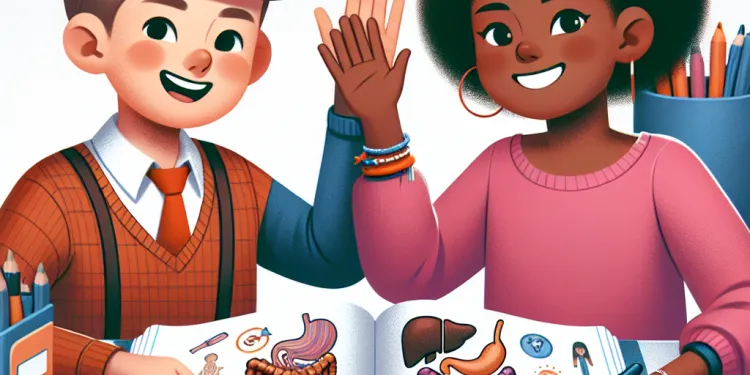
Find Help
More Items From Ergsy search
-
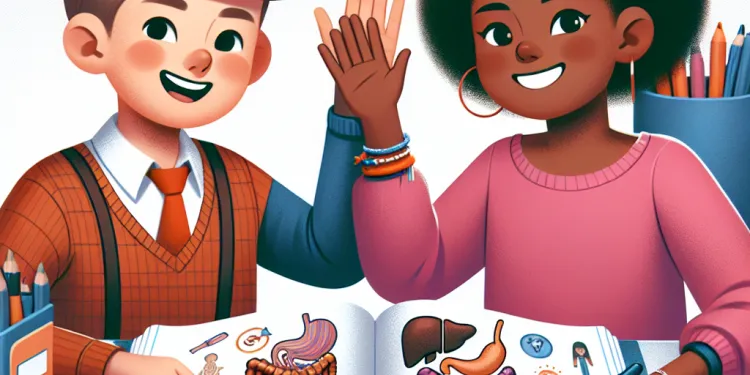
Can children develop Crohn's disease?
Relevance: 100%
-

Is Crohn's disease contagious?
Relevance: 83%
-
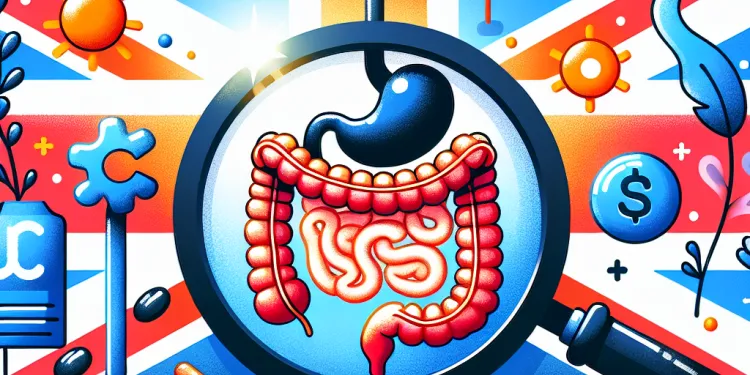
Is there a cure for Crohn's disease?
Relevance: 83%
-
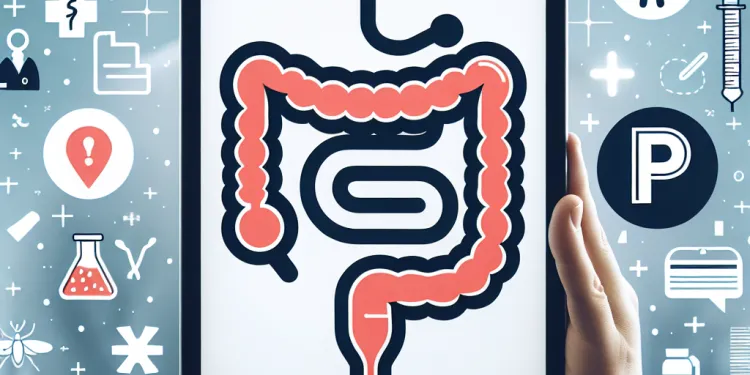
Is surgery necessary for Crohn's disease?
Relevance: 78%
-
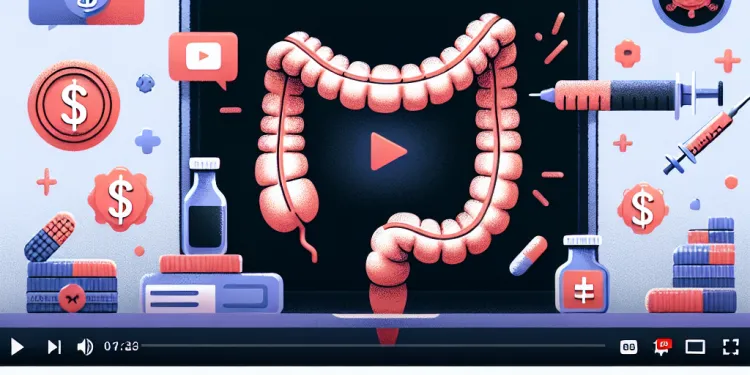
What causes Crohn's disease?
Relevance: 77%
-
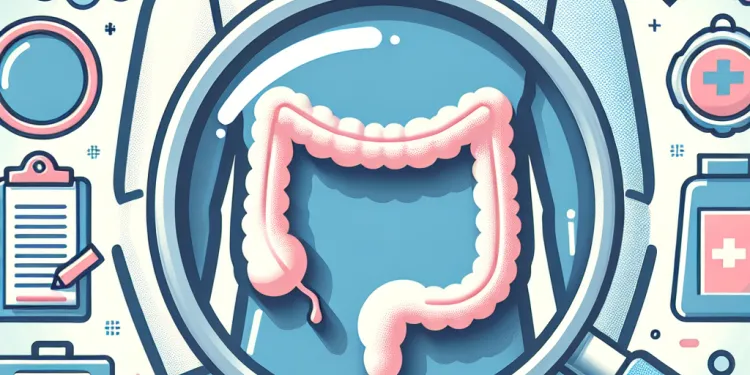
How is Crohn's disease diagnosed?
Relevance: 77%
-
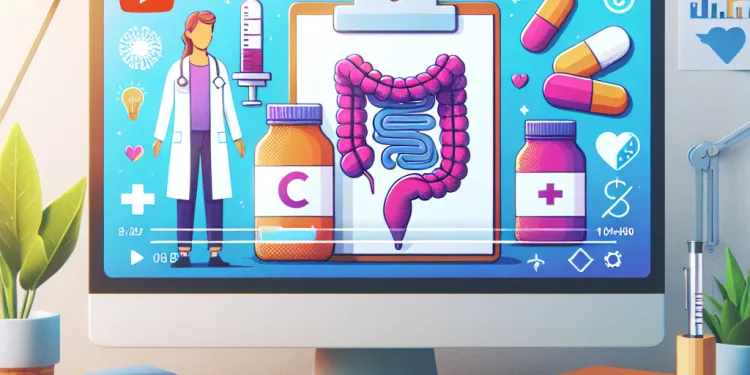
What treatments are available for Crohn's disease?
Relevance: 77%
-
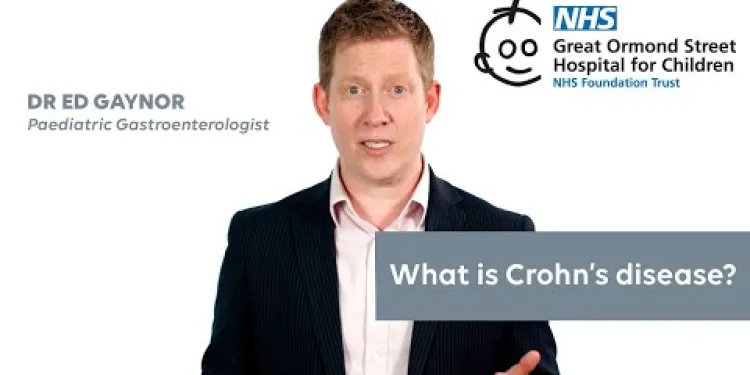
What is Crohn’s disease and how is it treated?
Relevance: 77%
-
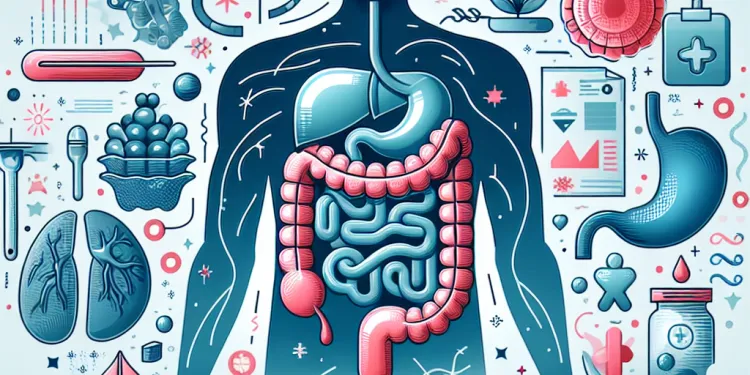
Are there any complications associated with Crohn's disease?
Relevance: 76%
-
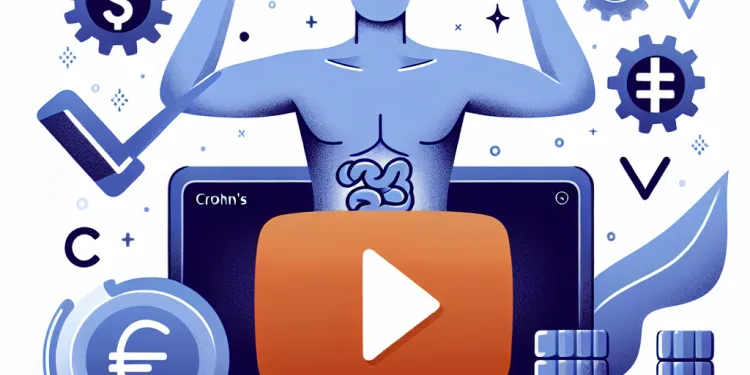
What are the common symptoms of Crohn's disease?
Relevance: 76%
-
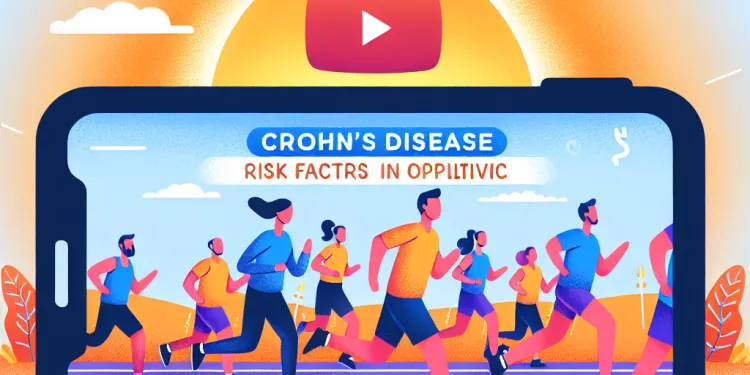
Who is at risk of developing Crohn's disease?
Relevance: 74%
-
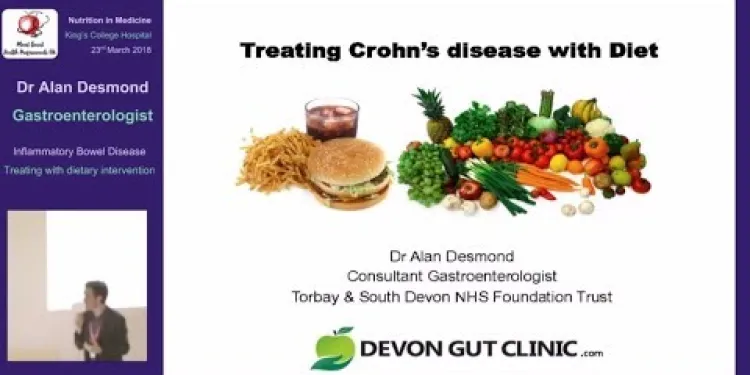
What is the best diet for Crohn’s disease?
Relevance: 73%
-

What support is available for people with Crohn's disease in the UK?
Relevance: 73%
-
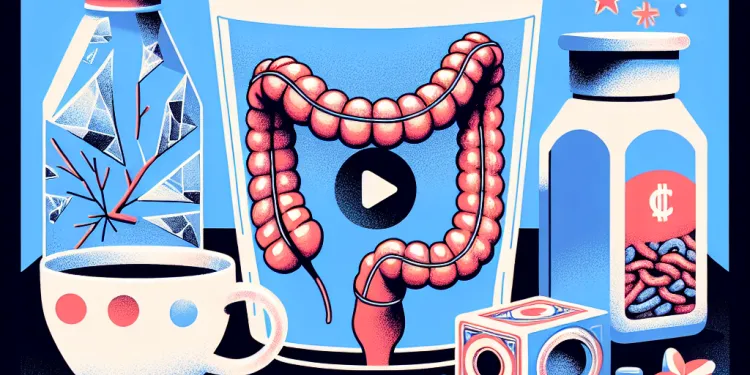
Can stress make Crohn's disease worse?
Relevance: 72%
-
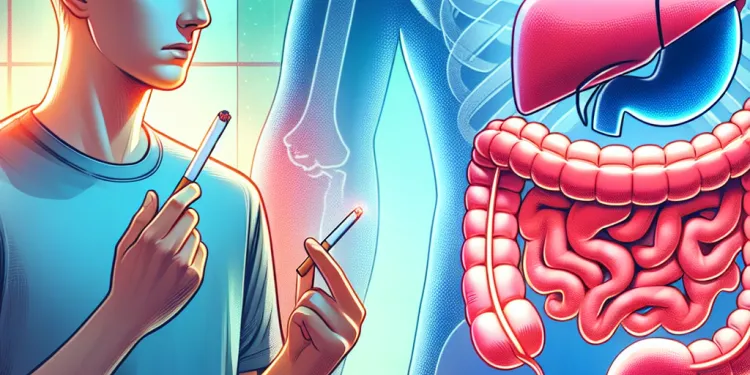
How does smoking affect Crohn's disease?
Relevance: 72%
-

What dietary changes can help manage Crohn's disease?
Relevance: 66%
-
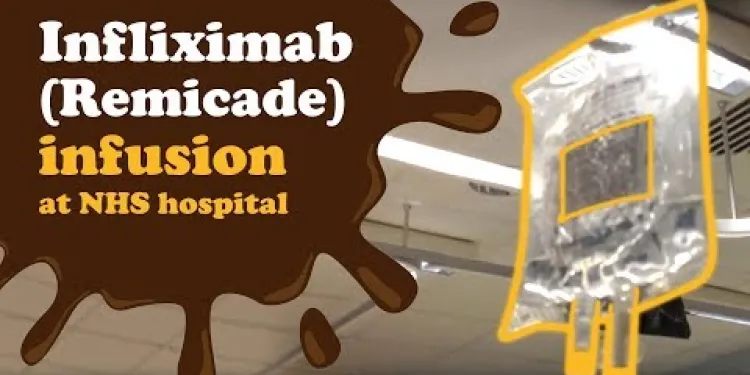
Infliximab infusion (Remicade) for Crohns Disease at Addenbrookes NHS hospital
Relevance: 60%
-
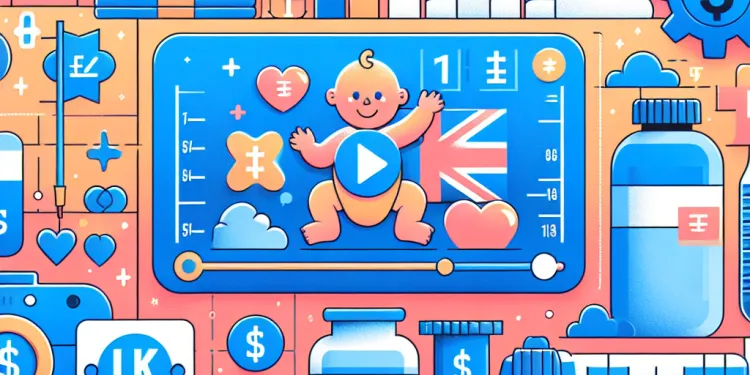
Children's Vaccination Schedule
Relevance: 36%
-

Lupus in children | NHS
Relevance: 34%
-
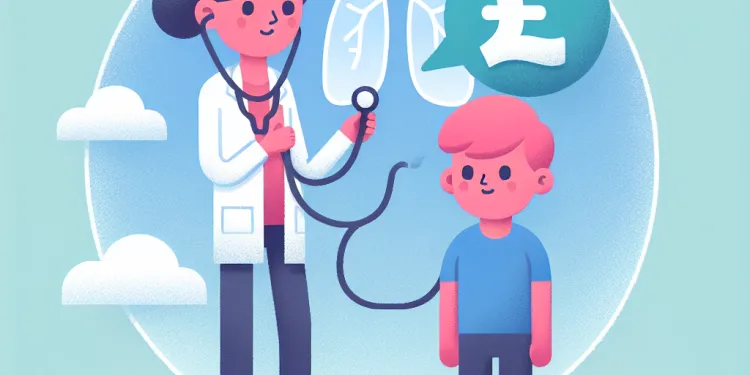
What is lupus in children?
Relevance: 34%
-

How is lupus diagnosed in children?
Relevance: 32%
-
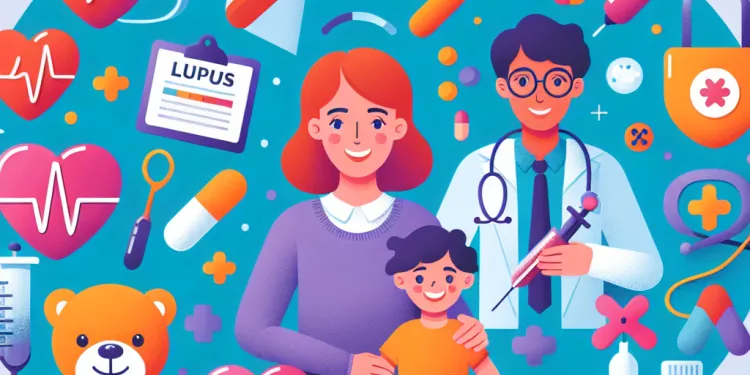
What causes lupus in children?
Relevance: 32%
-

What are the common symptoms of lupus in children?
Relevance: 31%
-

Can Wegovy be used by children?
Relevance: 31%
-
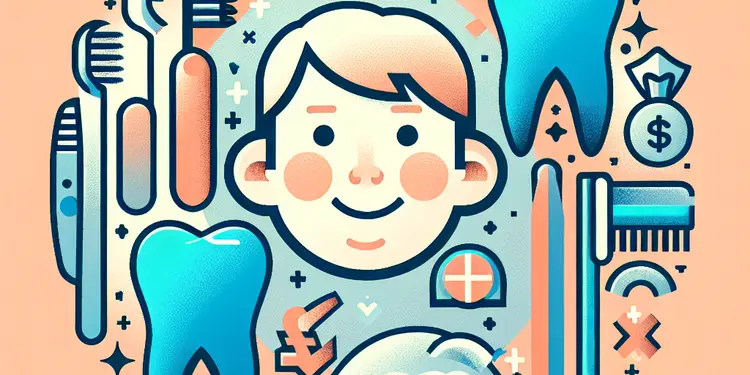
Is tooth decay common in children?
Relevance: 31%
-
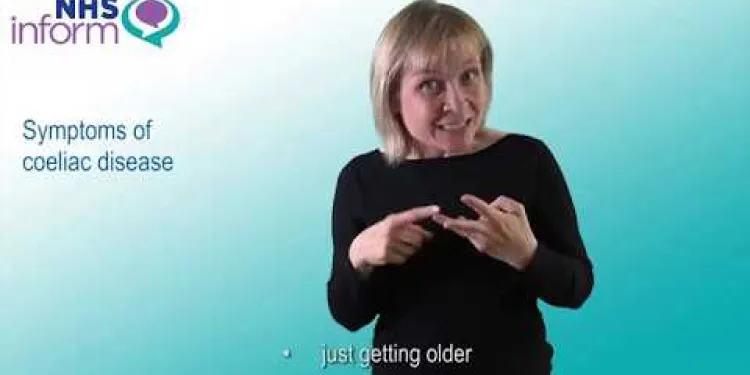
Symptoms of coeliac disease
Relevance: 31%
-
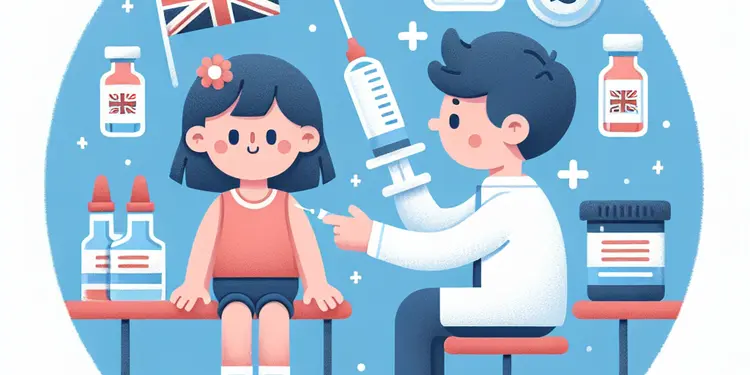
At what age should children receive the meningococcal vaccine?
Relevance: 31%
-
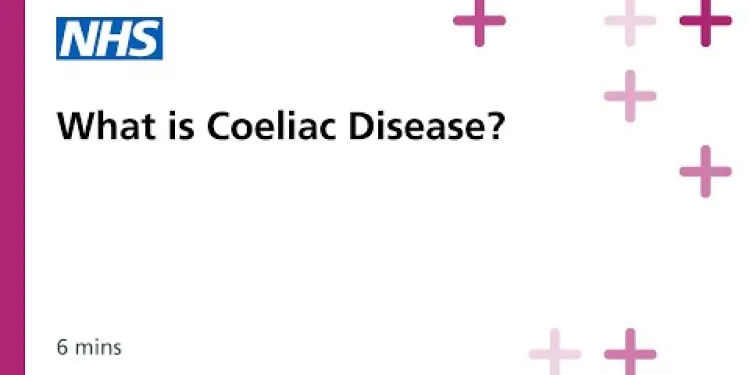
Coeliac Disease: Session 1: What is Coeliac Disease?
Relevance: 30%
-
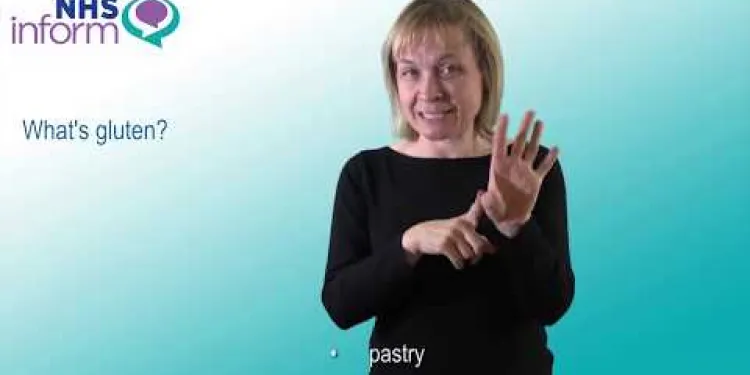
Coeliac disease
Relevance: 30%
-

What are the symptoms of sickle cell disease?
Relevance: 30%
-
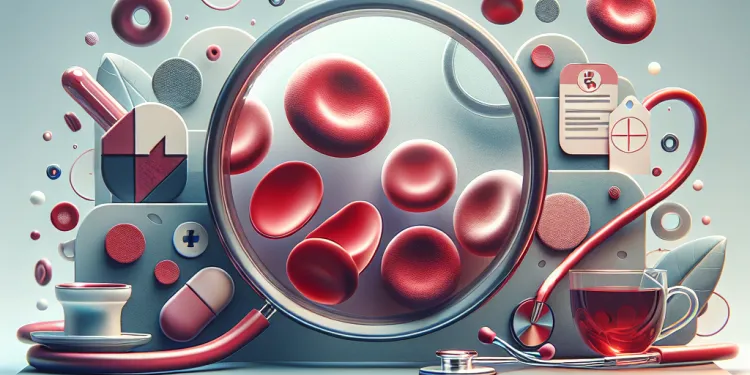
What is sickle cell disease?
Relevance: 29%
-

Who are SEND children?
Relevance: 29%
-

What are SEND children?
Relevance: 29%
-

Is Baxdrostat suitable for children?
Relevance: 29%
-
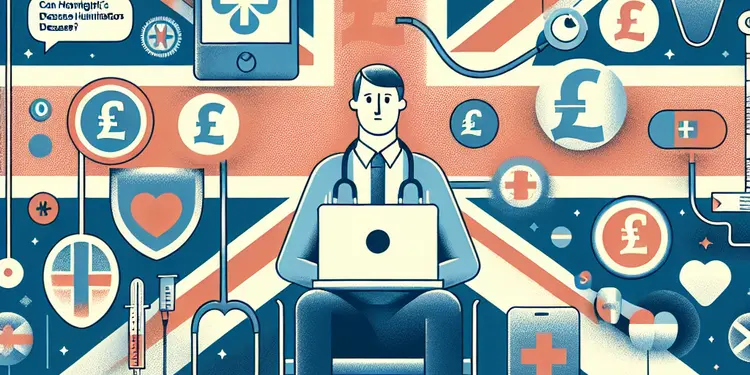
Can Huntington's disease be prevented?
Relevance: 28%
-

At what age should children receive the MMR vaccine?
Relevance: 28%
-

Are there specific mobility equipment for children?
Relevance: 28%
-

Can children use Mounjaro?
Relevance: 28%
-

Can children outgrow asthma?
Relevance: 28%
-
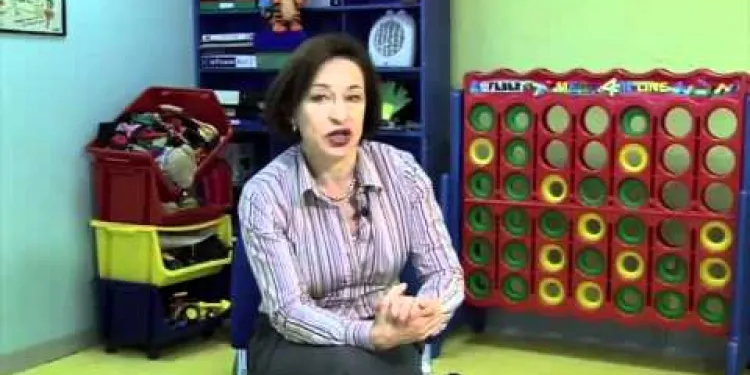
Children With Co-ordination Difficulties and Dyspraxia
Relevance: 28%
Can Children Develop Crohn's Disease?
Crohn's disease is a chronic inflammatory condition that affects the gastrointestinal tract. While it is more commonly diagnosed in adolescents and young adults, children can also develop this condition. Understanding how Crohn's disease impacts children and the implications for their health is crucial for early diagnosis and management.
Understanding Crohn's Disease in Children
In children, Crohn's disease can affect any part of the digestive tract, from the mouth to the anus. The symptoms can vary significantly, but common indicators include abdominal pain, diarrhea, fatigue, and weight loss. Growth failure and delayed puberty are also significant concerns for children with Crohn's disease, affecting their overall development. The condition can present a challenge in terms of both physical health and emotional well-being due to its chronic nature and the potential for social stigma around digestive health issues.
Diagnosis and Management
Diagnosing Crohn's disease in children involves a thorough medical assessment, which may include blood tests, stool samples, imaging studies, and endoscopy. It's essential that parents work closely with healthcare professionals, including pediatricians and gastroenterologists, to determine an accurate diagnosis and develop an effective management plan. Treatment goals focus on controlling inflammation, relieving symptoms, and ensuring normal growth and development. Management often includes a combination of medication, nutritional support, and sometimes surgery, on a case-by-case basis.
Support and Resources for Families in the UK
Families in the UK can access a variety of resources for managing Crohn's disease in children. The NHS provides guidance and treatment options, while support groups and charities like Crohn's and Colitis UK offer valuable information and community connection. These organizations provide educational materials, support networks, and advocacy to help families navigate the challenges of living with Crohn's disease.
Empowering families with knowledge and support can significantly impact the quality of life for children with Crohn's disease, ensuring they receive the necessary care to manage their condition effectively and lead fulfilling lives.
Can Kids Get Crohn's Disease?
Crohn's disease is a long-lasting illness that affects the stomach and intestines. It is usually found in older kids and adults, but younger kids can get it too. Knowing how Crohn's disease affects kids is important so it can be found and treated early.
Understanding Crohn's Disease in Kids
In kids, Crohn's disease can hurt any part of the digestive system, from the mouth to the bottom. Kids may feel stomach pain, have diarrhea, feel very tired, or lose weight. Kids might not grow properly or hit puberty late if they have Crohn's disease. This illness can be hard for kids because it might make them feel sick a lot and worried about what others think.
How Doctors Find and Treat Crohn's Disease
To find out if a kid has Crohn's disease, doctors do tests. These tests can include blood tests, checking poo, and taking pictures of the inside of the body. It's important for parents to work with doctors to find the right treatment. Treatment helps to stop swelling, make kids feel better, and help them grow normally. This can include medicine, healthy eating, and sometimes surgery.
Help and Support for Families in the UK
Families in the UK can get lots of help for kids with Crohn’s disease. The NHS helps with advice and treatment. Groups like Crohn’s and Colitis UK give information and support. These groups help families learn more and connect with others who understand the illness.
When families know more and get support, it can make a big difference for kids with Crohn's disease. This way, kids can get the right care and live happy lives.
Frequently Asked Questions
Can Crohn's disease affect children?
Yes, Crohn's disease can affect children. It is a type of inflammatory bowel disease that can occur at any age, including in childhood.
What are the early signs of Crohn's disease in children?
Early signs in children may include abdominal pain, diarrhoea, weight loss, fatigue, and poor growth. It's important to consult a doctor if these symptoms are present.
How is Crohn's disease diagnosed in children?
Diagnosis may involve a combination of tests including blood tests, stool samples, endoscopy, colonoscopy, and imaging studies like MRI or CT scans.
What causes Crohn's disease in children?
The exact cause is unknown, but it is believed to be due to a combination of genetic, environmental, and immune system factors.
Is there a cure for Crohn's disease in children?
There is currently no cure for Crohn's disease, but treatments are available to manage symptoms and help maintain remission.
Can Crohn's disease in children be hereditary?
While the exact cause is unknown, genetics can play a role. Children with a family history of the disease may have a higher risk of developing it.
What treatments are available for children with Crohn's disease?
Treatment options may include medication, nutritional therapy, and in some cases, surgery. The goal is to reduce inflammation and manage symptoms.
Can diet affect Crohn's disease in children?
While diet doesn't cause Crohn's disease, certain foods can exacerbate symptoms. A tailored diet or nutritional support can be part of the management plan.
How does Crohn's disease impact a child's growth and development?
Crohn's can lead to malnutrition which may affect a child’s growth and development. Monitoring and nutritional support are crucial.
How common is Crohn's disease among children in the UK?
Crohn's disease in children is less common than in adults, but it is being diagnosed more frequently, with several thousand children estimated to be affected in the UK.
Are there support resources for families dealing with Crohn's disease in children?
Yes, organisations like Crohn's & Colitis UK offer resources and support for affected families, including information, forums, and helplines.
What lifestyle changes can help manage Crohn's disease in children?
Lifestyle changes such as stress management, regular medical check-ups, adherence to treatment plans, and possibly avoiding certain foods can help manage the condition.
Can children with Crohn's disease lead normal lives?
Yes, with proper management and treatment, many children with Crohn's disease can lead active and fulfilling lives.
Is surgery common for children with Crohn's disease?
Surgery is not usually the first line of treatment but may be necessary if medications are not effective or if complications arise.
What is the prognosis for children diagnosed with Crohn's disease?
The prognosis can vary. With early diagnosis and effective treatment, many children can achieve long periods of remission and manage the disease effectively.
Can children get Crohn's disease?
Yes, children can have Crohn's disease. It is a sickness that makes the tummy hurt. It can make you feel tired, have a tummy ache, and you might not want to eat.
If you think a child has Crohn's disease, talk to a doctor. They can help.
Here are some things that might help:
- Eat healthy foods.
- Rest when you are tired.
- Talk about how you feel.
Yes, kids can get Crohn's disease. It's a sickness that makes the tummy hurt. People of any age can get it, even children.
What are the early signs of Crohn's disease in children?
What signs show Crohn's disease in children?
Crohn's disease is a sickness in the tummy. Here are some early signs:
- Bad tummy aches
- Feeling very tired
- Not feeling hungry
- Losing weight
- Diarrhea (runny poo)
If you see these signs, talk to a doctor. Drawing pictures or keeping a diary can help explain how they feel. Using apps or talking pictures can also make it easier for children to share their symptoms.
Look out for these signs in children: tummy pain, runny poo, losing weight, feeling very tired, and not growing well. If you see any of these signs, it's important to talk to a doctor.
How do doctors find out if a child has Crohn's disease?
Doctors use different tests to find out if a child has Crohn's disease. First, they ask questions about how the child is feeling. Then, they do special tests. These tests can include:
- Blood tests: Doctors check the blood to see if there are signs of Crohn's.
- Stool tests: Doctors check a small sample of poop to look for problems.
- Scans: Doctors use machines to take pictures inside the body.
- Endoscopy: A doctor uses a small camera to look inside the body.
If you think your child might have Crohn's disease, talk to a doctor. They can help.
Doctors find out what is wrong using different tests. These tests might include:
- Blood tests: Taking a small amount of your blood.
- Stool samples: Checking a small sample of your poo.
- Endoscopy: Using a special camera to look inside your body.
- Colonoscopy: Using a camera to look inside your large intestine.
- Imaging tests: Taking pictures of the inside of your body using MRI or CT scans.
What makes children get Crohn's disease?
Crohn's disease can make your tummy hurt. Here are some things that might cause it:
- Genes: Sometimes, it runs in families. Ask if anyone in your family has it.
- Immune system: Your body defends itself from germs, but sometimes it might attack itself by mistake.
- Food and Environment: Some foods or places might make it worse. Eat healthy food.
If you have questions or need help, talking to a doctor can be a good idea. They can explain more about it.
We do not know the exact cause. But we think it happens because of a mix of genes, things around us, and the body's defense system.
Can doctors make Crohn's disease go away in children?
Right now, doctors don't have a cure for Crohn's disease. This means they can't make it go away completely.
But doctors can help children feel better with medicine and special diets. These can help manage the symptoms and make life easier.
If you know a child with Crohn's disease, it's important they see a doctor regularly.
It can also be helpful to talk to a counselor or join a support group. This way, they can get support from other people who understand.
Right now, there is no way to completely fix Crohn's disease. But, there are treatments that can help make the symptoms better and keep the disease under control.
Can children get Crohn's disease from their parents?
Crohn's disease is a sickness that affects the tummy and intestines. Some children may get it more easily because of their family's health history. This means if a parent or close family member has Crohn's disease, a child might have a higher chance of getting it.
If you want to understand more, you can:
- Talk to a doctor.
- Read simple health books or websites.
- Ask questions if you need help.
No one knows for sure what causes it. But it can run in families. If your family has had it, you might have a bigger chance of getting it too.
What helps children with Crohn's disease feel better?
Here are some ways to help children with Crohn's disease:
- Medicine: Doctors can give special medicine to help the tummy feel better.
- Healthy Food: Eating the right food can help. A doctor or a nurse can say what food is good.
- Rest and Sleep: Getting lots of sleep helps the body heal.
- Talking to Someone: Speaking with a doctor, nurse, or counselor can make it easier to understand and manage feelings.
These things can help children feel better and be healthy.
Doctors can help in different ways. They might give you medicine, talk about healthy food, or sometimes do surgery. The main goal is to make you feel better and stop swelling inside your body.
Can food change how Crohn's disease feels in kids?
Some kids have a sickness called Crohn's disease. It can make their tummy hurt. What they eat might help. Eating good and healthy foods is important.
If you have Crohn's disease, talk to a doctor about what to eat. They can help you choose foods that are gentle on your tummy.
Here are some tips:
- Eat small meals often, instead of big meals.
- Drink lots of water.
- Try foods that are easy to digest, like bananas and rice.
- Avoid spicy and fatty foods that might upset your tummy.
Remember, each person is different. What helps one person might not help another. Always ask a doctor what is best for you.
What you eat doesn't cause Crohn's disease. But some foods can make it worse. Eating certain foods can help manage it better.
How does Crohn's disease affect a child's growth and development?
Crohn's disease can make it hard for kids to grow strong and healthy. Here is how it can affect children:
- Trouble Growing: Children may not grow as tall as other kids their age.
- Weight Loss: They might not gain weight or could even lose weight.
- Tiredness: Kids can feel very tired and have less energy to play or do things.
- Stomach Pain: They might have stomach aches often.
If your child has Crohn's disease, regular check-ups with a doctor can help manage these problems.
Helpful Tips:
- Speak to a doctor or nurse. They can help explain things clearly.
- Eat healthy foods and stay active to help your body grow well.
- Use a diary to keep track of how your child feels and grows. This can help the doctor understand what is happening.
Crohn's disease can make it hard for a child to get the right nutrients. This can affect how they grow and develop. It is very important to watch their nutrition and get help if needed.
How many children in the UK have Crohn's disease?
Crohn's disease is a sickness that happens in the stomach and gut. It is not very common in children. In the UK, about 1 out of every 200 children might have Crohn's disease.
If you want to know more, you can ask a doctor or read together with someone who can help. Looking at pictures or videos can also make it easier to understand.
Not many kids have Crohn's disease compared to grown-ups. But doctors are finding it more often now. In the UK, many kids have it.
Is there help for families with kids who have Crohn's disease?
Yes, there is help for families. Families can find support groups and talk to doctors who know about Crohn's. Reading books or watching videos about Crohn's can also help. Remember, you can always ask for help if you need it.
Yes, there are groups like Crohn's & Colitis UK that help families. They have information, places to talk, and phone lines to help.
How can we help children with Crohn's disease feel better?
Crohn's disease can make a child's tummy hurt. Here are some easy ideas to help: - **Eat Healthy Food:** Give them fruits, veggies, and foods that are easy to digest. - **Drink Lots of Water:** Make sure they drink enough water every day. - **Get Enough Rest:** Help them have a bedtime routine to sleep well. - **Stay Active:** Encourage gentle play and activities they enjoy. - **Keep Stress Low:** Help them relax with fun games or quiet time. If you're not sure what to do, ask a doctor or a nurse for advice.Changing some things in your life can help you feel better. You can do things like:
- Stay calm and manage stress. Try deep breathing or talking to someone you trust.
- Visit the doctor regularly to check how you are doing.
- Follow the doctor's advice and take your medicine when you need to.
- Sometimes, not eating certain foods can also help you feel better.
Can kids with Crohn's disease live normal lives?
Crohn's disease is a health problem that affects the tummy and the gut. Even though it can be serious, kids with Crohn's can live a normal life with the right care.
Here are some ways to help:
- Visit the doctor often to keep an eye on the disease.
- Eat healthy foods that are gentle on the tummy.
- Take medicines if the doctor says so.
- Get enough rest and sleep so the body can heal.
- Tell teachers and friends so they can give support.
With help, kids with Crohn's can play, learn, and have fun just like other kids!
Yes, with the right care and help, many children with Crohn's disease can live happy and busy lives.
Do many children with Crohn's disease need surgery?
Crohn's disease is a sickness that can make your tummy hurt. Sometimes, medicine does not help enough. In these cases, some children might need to have a special operation, called surgery, to feel better.
If you have questions or feel worried, talking to a doctor or nurse can help. They can explain what might happen and how to stay healthy.
Here are some tools that might help:
- Helpful pictures: Look at drawings or videos that show what happens in surgery.
- Talk to someone: Ask questions if you do not understand. It is okay to ask your doctor or family.
- Write it down: Make a list of things you want to know. Take it to the doctor.
Doctors usually do not do surgery first. But they might need to if medicine does not help or if other problems happen.
How do children with Crohn's disease feel as they grow up?
Children with Crohn's disease can have different experiences. Some children might feel better quickly with the right medicines and help from doctors.
Other children might have to visit the doctor more often to feel better.
It is important to eat healthy foods and rest well. Talking to a doctor can help find what works best.
Using a notebook to track how you feel or telling a grown-up when you're not feeling well is helpful.
With good care, most children can feel better and do the things they like.
What happens in the future can be different for everyone. If doctors find the disease early and treat it well, lots of kids can feel better for a long time. They can learn to handle the disease better too.
Useful Links
This website offers general information and is not a substitute for professional advice.
Always seek guidance from qualified professionals.
If you have any medical concerns or need urgent help, contact a healthcare professional or emergency services immediately.
Some of this content was generated with AI assistance. We’ve done our best to keep it accurate, helpful, and human-friendly.
- Ergsy carfully checks the information in the videos we provide here.
- Videos shown by Youtube after a video has completed, have NOT been reviewed by ERGSY.
- To view, click the arrow in centre of video.
- Most of the videos you find here will have subtitles and/or closed captions available.
- You may need to turn these on, and choose your preferred language.
- Go to the video you'd like to watch.
- If closed captions (CC) are available, settings will be visible on the bottom right of the video player.
- To turn on Captions, click settings .
- To turn off Captions, click settings again.
More Items From Ergsy search
-

Can children develop Crohn's disease?
Relevance: 100%
-

Is Crohn's disease contagious?
Relevance: 83%
-

Is there a cure for Crohn's disease?
Relevance: 83%
-

Is surgery necessary for Crohn's disease?
Relevance: 78%
-

What causes Crohn's disease?
Relevance: 77%
-

How is Crohn's disease diagnosed?
Relevance: 77%
-

What treatments are available for Crohn's disease?
Relevance: 77%
-

What is Crohn’s disease and how is it treated?
Relevance: 77%
-

Are there any complications associated with Crohn's disease?
Relevance: 76%
-

What are the common symptoms of Crohn's disease?
Relevance: 76%
-

Who is at risk of developing Crohn's disease?
Relevance: 74%
-

What is the best diet for Crohn’s disease?
Relevance: 73%
-

What support is available for people with Crohn's disease in the UK?
Relevance: 73%
-

Can stress make Crohn's disease worse?
Relevance: 72%
-

How does smoking affect Crohn's disease?
Relevance: 72%
-

What dietary changes can help manage Crohn's disease?
Relevance: 66%
-

Infliximab infusion (Remicade) for Crohns Disease at Addenbrookes NHS hospital
Relevance: 60%
-

Children's Vaccination Schedule
Relevance: 36%
-

Lupus in children | NHS
Relevance: 34%
-

What is lupus in children?
Relevance: 34%
-

How is lupus diagnosed in children?
Relevance: 32%
-

What causes lupus in children?
Relevance: 32%
-

What are the common symptoms of lupus in children?
Relevance: 31%
-

Can Wegovy be used by children?
Relevance: 31%
-

Is tooth decay common in children?
Relevance: 31%
-

Symptoms of coeliac disease
Relevance: 31%
-

At what age should children receive the meningococcal vaccine?
Relevance: 31%
-

Coeliac Disease: Session 1: What is Coeliac Disease?
Relevance: 30%
-

Coeliac disease
Relevance: 30%
-

What are the symptoms of sickle cell disease?
Relevance: 30%
-

What is sickle cell disease?
Relevance: 29%
-

Who are SEND children?
Relevance: 29%
-

What are SEND children?
Relevance: 29%
-

Is Baxdrostat suitable for children?
Relevance: 29%
-

Can Huntington's disease be prevented?
Relevance: 28%
-

At what age should children receive the MMR vaccine?
Relevance: 28%
-

Are there specific mobility equipment for children?
Relevance: 28%
-

Can children use Mounjaro?
Relevance: 28%
-

Can children outgrow asthma?
Relevance: 28%
-

Children With Co-ordination Difficulties and Dyspraxia
Relevance: 28%


